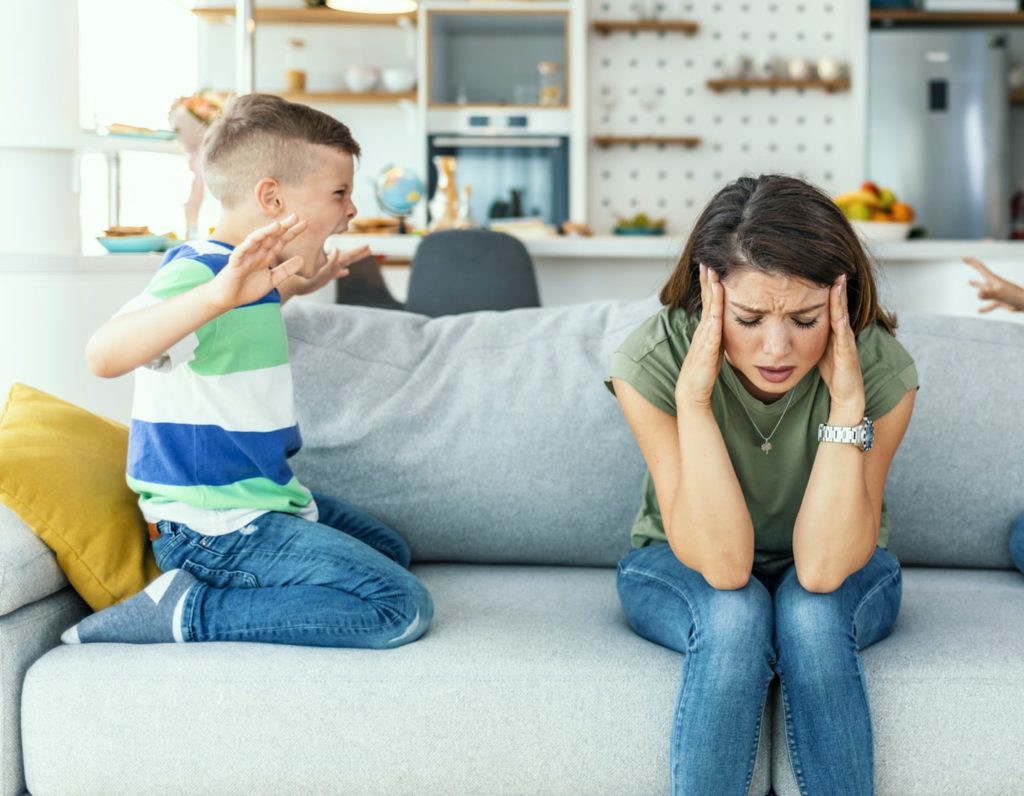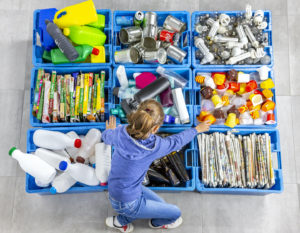
 Post Category - WellnessWellness - Post Category - HealthHealth
Post Category - WellnessWellness - Post Category - HealthHealthDo you know how to help your child when they show signs of trauma? Plus here’s what to know if you find your child’s general behaviour triggering
Would you know if your child was suffering from trauma? As a parent are you still holding on to residual trauma that’s impacting how you parent? You may be thinking, oh I haven’t experienced any major “trauma”. But trauma is actually more common than people realize. Angeline Kin from the team of psychologists, psychotherapists, and art counsellors at The Center for Psychology shares what causes trauma, how it manifests, and what you can do to help your child and be a better parent.
Trauma can be categorised into ‘Shock Trauma’ (accidents, injuries, invasive medical procedures, natural disasters, random violent crime or single traumatic events), Chronic Trauma (cumulative multiple stressors such as bullying, emotional neglect, harassment, discrimination, chronic sibling discord, divorce, separation) and Developmental/Relational Trauma (childhood physical, sexual, verbal and emotional abuse, neglect, relationships built on patterns of abuse or addiction).
How can you identify if your child is suffering from trauma?
Angeline Kin, an art psychotherapist, and counsellor at The Center for Psychology says “The majority of adolescents I see struggling with depression, anxiety or stress often manifest symptoms of ‘traumatic stress’ reflected in the stuck flight/fight/freeze adaptive stress responses that happened years before but have continued maladaptively into the present. They may either present as internalising symptoms (withdrawal, depression, somatic disturbances) or externalised symptoms (irritability, defiance, acting out). Some struggle with suicidal thoughts, and self-harm, whilst others are shut down with dissociation as their only mode of coping. Many also present with insecure attachment patterns with a breakdown in the parent-teen relationship. Their parents are either unaware of their teen’s predicament or are absent/ preoccupied dealing with multiple other life/family challenges”.
Are you being triggered due to your own traumas?
As a parent you may also have experiences of trauma from as far back as your own childhood that have stayed with you and that can in turn affect how you parent your child. Ask yourself when your child or adolescent is upset – are you triggered by your own feelings or are you responding empathically to what your child/teen actually needs?
We have all learnt our emotional responses through how our parents responded to our emotions, especially our negative emotions: distress, anger, sadness, anxiety or fear. Typically, parents who are dysregulated are unable to help their child recognize, identify, understand, express and manage feelings within the context of triggers, impulses and healthy behaviour.

How can you best parent your child?
There will be times where your child is distressed, which can be very upsetting for you as well – but it’s important for you to stay calm, empathic and present as you attend to them. Your capacity to cope during stress, self-regulate and model emotional intelligence and regulation is the best thing you can do to inoculate your child/adolescent against traumatic stress. To be 100% present with your screaming child or raging adolescent without becoming activated yourself is the challenge. Your calm presence, empathic tone and caring facial expression and body language that conveys to your child/teen a sense of security, safety and protection will help them build resilience for difficulties to come.
Be a safe place for teens
Experts highlight that adolescents lack a mature prefrontal cortex (full maturity at about 25 years) which makes teens more vulnerable to stress and is further complicated by their ‘pushing parents away’ developmental needs for independence and identity formation. However, in times of extreme stress they will still need their parents to be attuned and act as ‘emotional secure bases’ to support them appropriately in managing emotional stress. To be able to respond in a way that is helpful to our children though, we need to first deal with any traumas or negative experience we as parents may have.
Work through your own unresolved issues to be a better parent
All parents can have a secure attachment with their children regardless of what their own childhood experiences were like. The key for parents is to have developed a coherent narrative of their own upbringing. Being a good enough parent requires that you first attend to yourself – think of the airplane oxygen mask protocol. Reach out, find professional support if needed to work through your unresolved childhoods, your past traumas, your anxieties or whatever gets in the way of being the parent you wish to be.
Interested to discuss any of these topics with a psychologist or counsellor? The Center for Psychology offers psychotherapy and counselling for individuals, couples, families, children and adolescents through talk therapy as well as art therapy.
The Center for Psychology, Tel: (+65) 6733 2893; 9125 7559, [email protected], www.center4psy.com






 View All
View All




 View All
View All









 View All
View All






